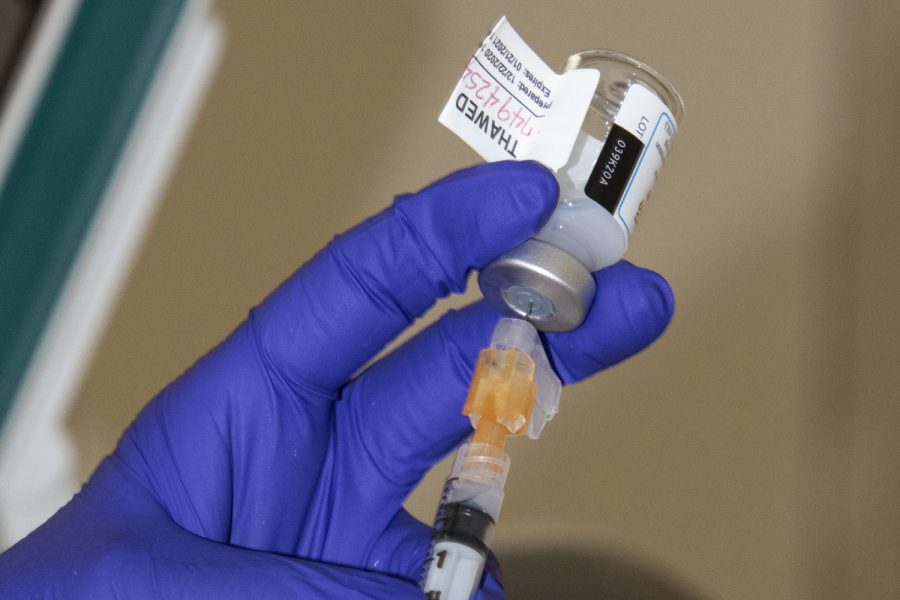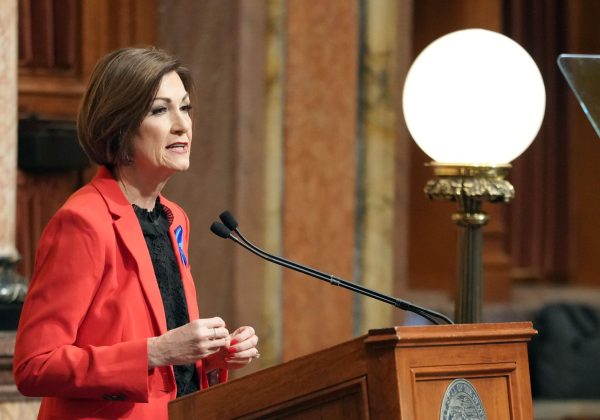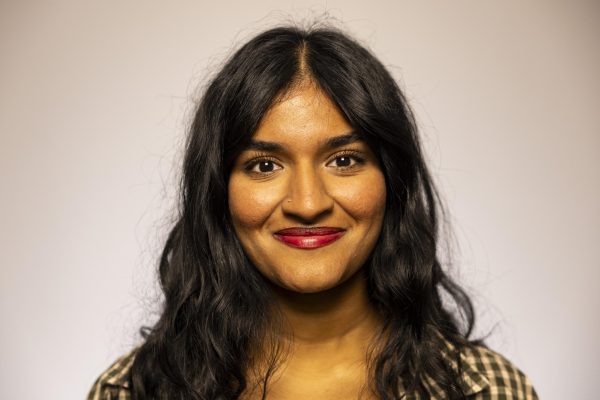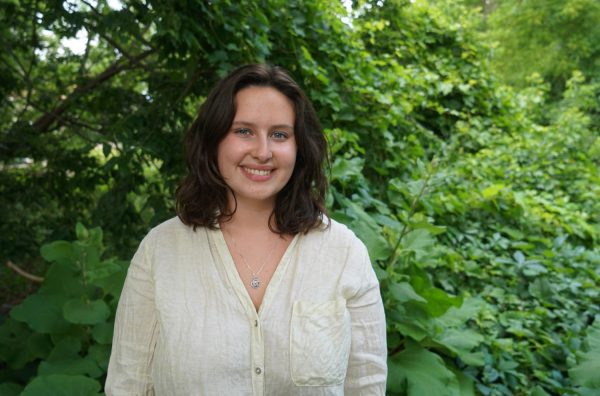Ops Blog | How should we respond to the omicron COVID-19 variant?
The Daily Iowan Opinions Staff reacts to the newest variant of COVID-19.
Moderna COVID-19 vaccine is drawn up on Tuesday, Dec. 22, 2020.
December 1, 2021
Shahab Khan (Opinions Columnist): New COVID-19 variant just dropped, I think they are calling it the omicron variant?
Hannah Pinski (Opinions and Amplify Editor): You’re right Shahab. It was first detected in South Africa and the World Health Organization announced it as the first new variant of concern since delta, and just Wednesday the first case was detected in the U.S.
Sophie Stover (Opinions Contributor): What do we know about omicron so far?
Shahab: Well, we actually know quite a bit about this new variant. When scientists in South Africa were analyzing the spike protein, it was found to have 30 mutations on it. What this means is that it may be more likely to avoid some of the antibodies that our immune systems have developed through vaccination or infection, but scientists still aren’t sure.
In addition, the WHO believes that omicron has a higher reinfection rate than past variants. It is believed that the virus originated in around September or October. So far, data from South Africa shows that omicron is less lethal than delta. However, South Africa has a very young population compared to industrialized nations like the U.S. and younger populations have much higher rates of survival.
Hannah: Countries have started to put in travel bans. Israel implemented a blanket ban to all foreigners. As for the U.S,, we have a travel ban on eight southern African countries.
Sophie: It’s important to remember though, we’re in a much better spot than we were in early 2020. We now have multiple vaccines and a better understanding of the virus overall.
Shahab: Yeah, especially given the wonders of the mRNA vaccine, we could have a booster developed to counteract the omicron variant in a couple weeks, if that ends up being necessary.
Hannah: I definitely think President Joe Biden’s response reflects this. In his statement, he emphasized it is a cause for concern, but not panic. He is also still encouraging those who are not vaccinated to get the vaccine and for other countries to donate vaccines to those who need them.
Sophie: You’re right Hannah. Recently, Biden called on member countries of the World Trade Organization to waive intellectual property rights for the COVID-19 vaccine. Biden was right when he said that global vaccinations are key to ending the pandemic.
Hannah: I agree with you Sophie. Saad Omer of the Yale Institute of Global Health said one of the best ways to prevent these variants is to address vaccine inequity. This would be allowing low-income countries to produce their own vaccines. Additionally, he said that travel bans could drive away health officials to be transparent about what is happening in their own country when it comes to the virus.
Shahab: To Sophie’s point, my hot take is that rather than just dumping vaccines off to nations in the Global South, industrialized nations need to work to help administer the vaccines in poorer countries. A lot of these states do not have the capacity to reach some of their unvaccinated populations and the best way to stop a virus is to immunize the whole world.
Sophie: With omicron here in the U.S., it’s likely to spread to multiple states. As individuals, we should continue to get vaccinated (including boosters) and mask up indoors.
Columns reflect the opinions of the authors and are not necessarily those of the Editorial Board, The Daily Iowan, or other organizations in which the author may be involved.














